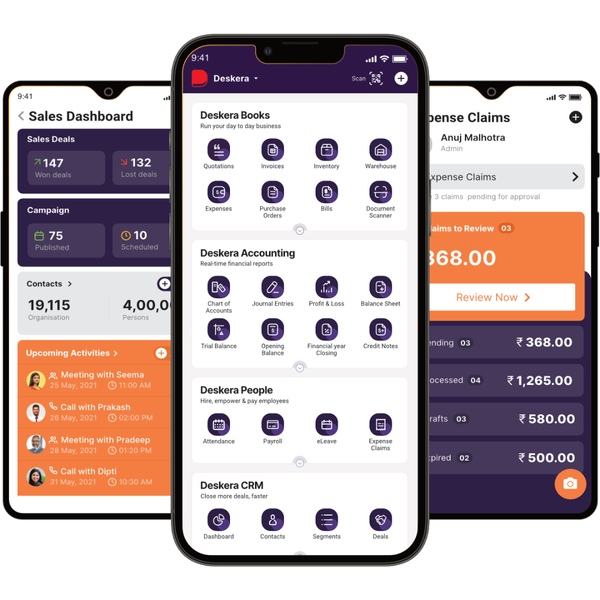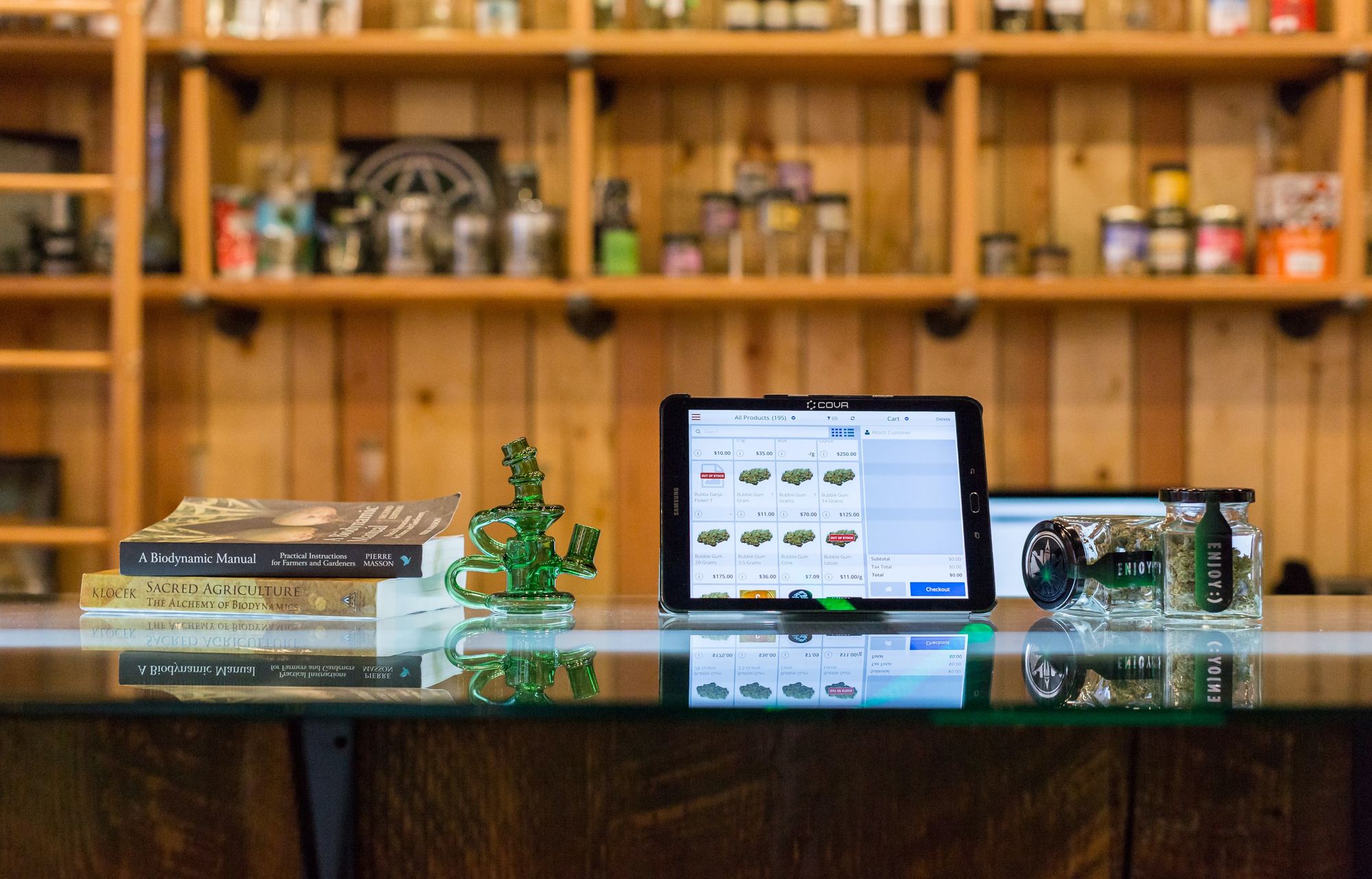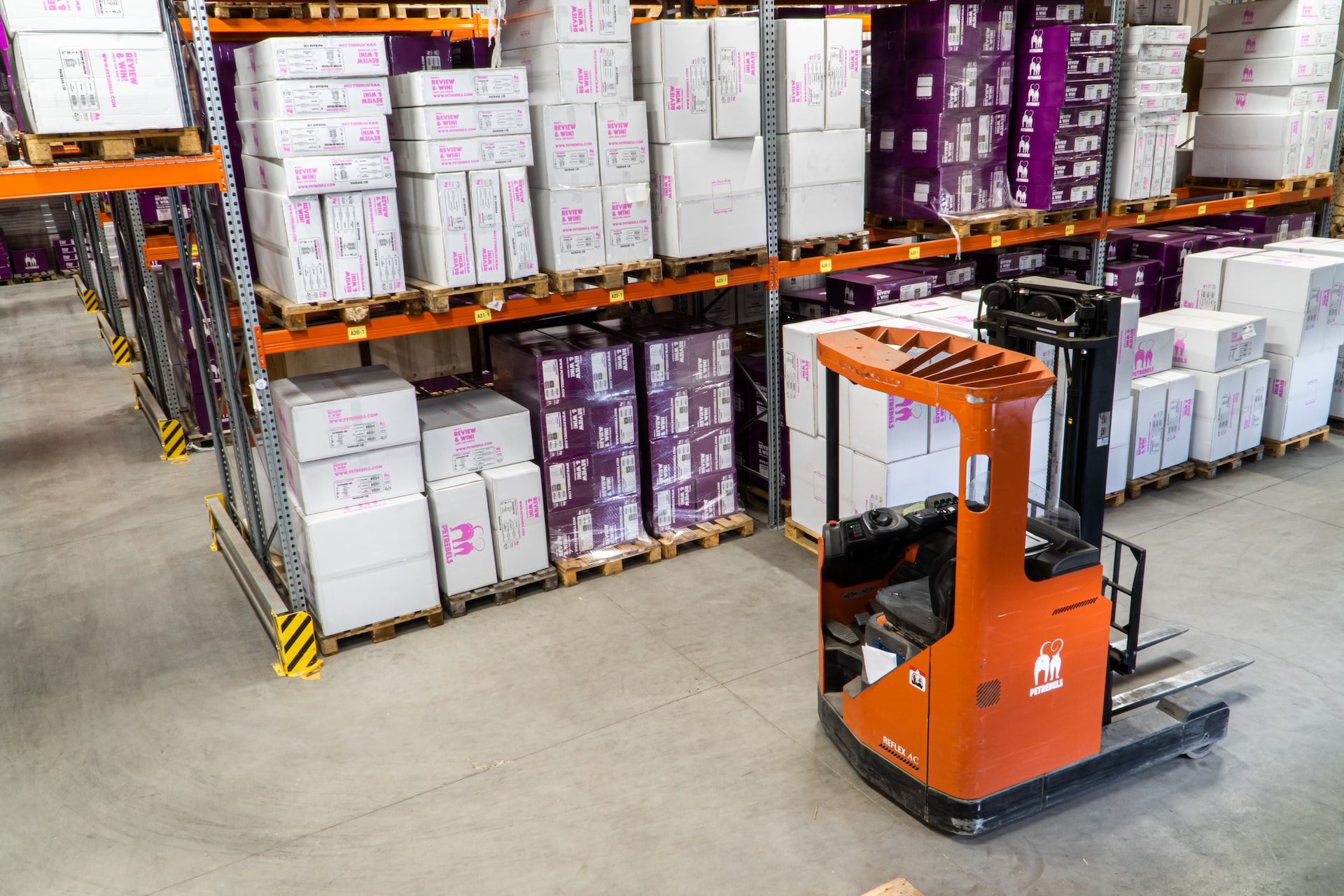Today, all businesses understand the importance of offering customers excellent service. But concentrating on the consumer may be both a blessing and a curse. Many businesses have turned to creating new systems and processes to accommodate every consumer request in an effort to become more customer-driven.

Such a strategy, however, has come to be a surefire way to increase unneeded expense and complexity to operations as customers and their wants become more and more diversified.
This article covers the following:
- What is mass customization?
- What are the benefits of mass customization?
- What are the challenges of mass customization?
- What are some of the examples of mass customization in business?
- What are the strategies for implementing mass customization?
- What are some of the tips for making the most of mass customization?
- What is the future of mass customization?
- How can Deskera assist you?
What is Mass Customization?
Mass customization is a business strategy that focuses on providing personalized products and services to customers in a cost-effective manner. It combines the benefits of mass production (low cost and high efficiency) with the customization and personalization of individual products and services.
Mass customization allows companies to tailor their offerings to individual customers and meet their specific needs while still minimizing costs and maximizing efficiency. At its core, mass customization is about creating a product or service that is unique to each customer.
Companies use a variety of techniques to achieve this, such as allowing customers to select from a variety of options, utilizing advanced technology to personalize products and services, and leveraging customer data to create tailored experiences.
By understanding and responding to customer preferences and needs, companies can create a truly individualized and meaningful experience. The key to successful mass customization is data. Companies must collect and analyze customer data to understand each individual customer’s preferences and needs.
This data can be used to design products and services that are tailored to each customer’s specific requirements. Companies can also use predictive analytics to anticipate customer needs and develop offerings accordingly.
In addition, companies must employ advanced technologies to enable mass customization. Technologies such as 3D printing and automated assembly are allowing companies to quickly and cost-effectively customize products and services without having to invest in costly new production processes or equipment.
In addition, companies can leverage platforms such as Artificial Intelligence and Machine Learning to automate processes and enable more personalized experiences. The advantages of mass customization are numerous.
Companies can provide customers with personalized experiences that are tailored to their individual needs while still controlling costs and maintaining efficiency. Mass customization can also help companies to differentiate their offerings from competitors, as customers are less likely to switch to another provider if they are receiving a personalized experience.
Finally, by leveraging the capabilities of best digital experience platforms, companies can gain valuable insights into customer data and their preferences, giving them an edge over competitors. Despite the advantages of mass customization, there are also challenges associated with this approach.
Companies must invest in the necessary technologies, processes, and personnel to enable mass customization, and they must ensure that customer data is protected and used responsibly.
Additionally, companies must ensure that their offerings are consistent across different customers, or else they risk alienating customers and damaging their reputations. In conclusion, mass customization is a powerful business strategy that allows companies to provide customers with tailored products and services in a cost-effective manner.
By leveraging customer data and advanced technologies, companies can create truly personalized experiences that are tailored to each individual customer’s needs. While there are risks associated with mass customization, the benefits of this approach can be significant, giving companies a competitive edge in the marketplace.
What are the Benefits of Mass Customization?
Mass customization is a business strategy that combines the cost efficiencies of mass production with the ability to customize products for individual customers. It is a process that allows companies to customize products to meet the specific needs and preferences of individual customers.
Mass customization has become increasingly popular in recent years as companies look to differentiate their products from those of their competitors and appeal to the needs of their customers.
Fulfils Specific Demands
The primary benefit of mass customization is that it allows companies to offer customers a product that is tailored to their needs and preferences. By allowing customers to choose the features, colors, and other characteristics of a product, companies can create a product that is more closely aligned with the customer’s preferences.
This increased level of customization can lead to increased customer satisfaction, as customers are more likely to be happy with a product that meets their exact needs and desires.
Helps Understand Customers Better
Another benefit of mass customization is that it can help companies to better understand the needs and preferences of their customers. By allowing customers to customize their products, companies can gain valuable insights into what their customers are looking for in a product. This information can then be used to inform product development and help companies better meet the needs of their customers.
Cost Efficient
In addition to the above benefits, mass customization can also help companies to reduce costs. By allowing customers to customize their products, companies can reduce the costs associated with producing and storing inventory, as the company can produce only the items that have been ordered. This can lead to a reduction in overhead and operational costs, allowing companies to be more competitive in the marketplace.
Gives Edge Over Competitors
Finally, mass customization can help companies to differentiate their products from those of their competitors. By allowing customers to customize their products, companies can create a unique product that is not available from other companies.
This can help companies stand out in the marketplace, as customers are more likely to remember a product that is customized to their needs. In conclusion, mass customization is a powerful business strategy that can provide a number of benefits to companies.
It allows companies to customize products to meet the specific needs and preferences of individual customers, which can lead to increased customer satisfaction.
It also allows companies to better understand the needs and preferences of their customers, which can help them to develop better products. Mass customization can also help companies to reduce costs and differentiate their products from those of their competitors. For these reasons, mass customization is an increasingly popular business strategy that can provide a number of benefits to companies.
What are the Challenges of Mass Customization?
Mass customization is a relatively new concept in the world of business and commerce, and it is one that is raising many challenges for companies. Mass customization is the idea that companies can produce customized goods for each customer without having to make big changes to their production process.
This allows them to offer more individualized products and services, which can be a great benefit for customers, but it also presents a number of challenges for companies. The first challenge is the cost.
High Costs Sometimes
Mass customization requires companies to invest in specialized equipment and processes that can produce customized goods. This is a significant investment, and it can be difficult for companies to justify the cost when they are already operating on tight margins.
Additionally, the cost of labor and materials can be higher when producing customized products, so companies must be prepared to invest in higher-quality materials and skilled labor. Another challenge is the complexity of the process.
Lack of Coordination
Mass customization requires companies to be able to quickly and accurately produce customized products. This requires a great deal of coordination between different departments, as well as the ability to quickly adapt to changes in customer demand. Companies must also ensure that the process is efficient so that the custom products can be produced quickly and cost-effectively.
May Weaken Customer Service
Finally, mass customization can also be difficult to manage from a customer service standpoint. Companies must be able to respond quickly to customer requests for personalized products and services, and they must also be able to track customer orders and adjust production accordingly. This requires efficient customer service and a robust order-tracking system, both of which can be difficult to implement and maintain.
Mass customization is an attractive proposition for companies, as it can help them to offer more personalized products and services to their customers. However, it also presents a number of challenges that must be addressed before companies can successfully implement a mass customization strategy.
Managing Customers & Their Requirements
Companies must invest in the necessary equipment and processes, and they must also be able to efficiently manage customer requests and orders. Additionally, companies must be prepared to invest in high-quality materials and skilled labor if they want to successfully produce customized products.
With the right strategies and investments, mass customization can be a great way for companies to differentiate themselves and offer more individualized products and services to their customers.
What are the Examples of Mass Customization?
Mass customization is a phenomenon that has grown in popularity over the years, due to the rise of technology and the changing needs of consumers. It is the process of customizing products and services to the exact specifications of each individual customer while still keeping costs low.
Mass customization is a powerful tool for companies to boost their profits, as it allows them to tailor their products and services to their customers while still keeping production costs low. One of the most well-known examples of mass customization is the custom products offered by many companies.
Companies like Nike, Adidas, and Apple all offer customers the ability to customize their products to their exact specifications. This includes being able to choose the color, material, and design of the product, as well as additional features like engravings and monograms.
These companies have been able to capitalize on the trend of personalized products and provide customers with a unique experience that they won't find anywhere else. Another example of mass customization is seen in the automotive industry. Many car companies offer customers the ability to customize their cars to their exact specifications.
This includes the ability to choose the make and model, exterior and interior color, and the type of engine. This allows customers to have a unique car that is tailored to their exact specifications while still keeping production costs low. Mass customization is also seen in the food industry.
Many restaurants now offer customers the ability to customize their meals to their exact specifications. This includes the ability to choose what type of ingredients you want in your meal, as well as the portion sizes.
This allows customers to have a meal that is tailored to their exact needs and tastes while still keeping production costs low. Finally, mass customization is seen in the clothing industry. Many clothing companies now offer customers the ability to customize their clothing to their exact specifications.
This includes the ability to choose the type of fabric, color, and pattern of clothing, as well as additional features like monograms. This allows customers to have clothing that is tailored to their exact specifications, while still keeping production costs low. In conclusion, a mass customization is a powerful tool for companies to boost their profits.
It allows them to tailor their products and services to the exact specifications of each individual customer, while still keeping production costs low. It is seen in a variety of industries, from the automotive industry to the clothing industry, and is becoming increasingly popular as consumers demand more personalized products and services. Mass customization is an effective way for companies to meet the needs of their customers, while still keeping production costs low.
What are the Strategies for Implementing Mass Customization?
Here are some of the strategies for implementing mass customization:
Establish Clear Goals
Establishing clear goals for any mass customization project is key. Make sure to consider the customer preferences, technical capabilities, and financial viability of the project before deciding on a particular strategy.
Understand Customer Need
To effectively implement mass customization, it is important to understand customer needs and preferences. This can be done through surveys, focus groups, and interviews.
Develop a Comprehensive Plan
Once you have a clear understanding of customer needs and preferences, it is important to develop a comprehensive plan that outlines the steps required to implement mass customization.
4. Consider Technology: Mass customization requires the use of technology to produce customized products. Consider the use of 3D printing, computer-aided design, and other technologies to make mass customization a reality.
Design for Scalability
When planning for mass customization, it is important to design for scalability. This means that the system should be able to accommodate a large number of customers with different needs and preferences.
Make Use of Automation
Automation can help streamline the process of mass customization and reduce the cost of production. Consider the use of automated systems for product design, customization, and manufacturing.
Implement Quality Control Measures
Quality control is an important part of any mass customization project. Put in place effective quality control measures to ensure that the customized products meet customer expectations.
Monitor Performance
Finally, it is important to monitor the performance of the mass customization project. Make sure to track customer feedback, sales metrics, and other performance indicators to ensure that the project is successful.
What are the Tips for Making the Most of Mass Customization?
Understand your Customer’s Needs
Before you start creating a mass customization strategy, it’s important to understand your customer’s needs and preferences. Conduct market research to find out what they want and how they want it. This will give you a better insight into how you can meet their needs and expectations.
Create Personalization Options
Once you understand your customer’s needs, you can create personalization options that they can choose from. This will allow them to customize their products or services to their liking.
Make use of Technology
Technology can be a great tool for providing customers with a personalized experience. Use technology to make mass customization easier, such as by providing customers with an online tool to customize their products to their specifications.
Offer a Wide Range of Customization Options
Offering a wide range of customization options will help ensure that you meet the needs of all your customers. This will make them feel like they can truly customize their product or service to their liking.
Monitor Customer Feedback
Monitor customer feedback to ensure that your mass customization strategy is meeting their needs. This will help you adjust and improve your strategy to better meet their needs in the future.
Create a Seamless Customer Experience
A seamless customer experience is essential for a successful mass customization strategy. Make sure that your customers have an easy time customizing their product or service and that they can do so without any hassles.
Use Data to Inform your decisions: Data can be a powerful tool for making informed decisions about mass customization. Collect data from customer feedback and use it to inform your decisions and improve your strategy.
What is the Future of Mass Customization?
The future of mass customization is looking bright. As technology progresses, more and more companies are beginning to take advantage of its potential. Mass customization is becoming increasingly popular in a number of industries, including fashion, automotive, and consumer electronics.
It’s becoming easier and more cost-effective for companies to offer personalized products to their customers, allowing them to tailor their purchases to their individual needs and preferences.
This trend is only set to increase, with mass customization becoming the norm in many industries in the years to come. Mass customization involves the use of technology to create customized products quickly and cost-effectively.
Companies no longer need to produce one-size-fits-all products; instead, they can create unique items tailored to the specific needs and preferences of their customers.
This is especially true in the fashion industry, where companies can now use 3D printing, laser cutting, and other technologies to create custom pieces for their customers.
The automotive industry is also taking advantage of mass customization. Automakers are now offering a range of options for their customers, from the choice of engine size and interior design to the color and trim of the car. This allows customers to customize the look and performance of their vehicles without having to pay for expensive customizations.
Consumer electronics are also benefiting from mass customization. Companies like Apple and Samsung are now offering personalization options for their devices, allowing customers to choose from a range of colors, designs, and features.
This not only allows customers to make their devices more unique but also encourages them to use their devices more often. The future of mass customization looks very promising. As technology continues to evolve, more and more companies will be able to offer personalized products to their customers.
This will lead to a more efficient and cost-effective manufacturing process, as well as a more satisfied customer base. Mass customization will also allow companies to stay ahead of the competition by providing unique and customized products to their customers.
In the years to come, mass customization will become more commonplace, allowing companies to offer unique products to their customers at a fraction of the cost. This will lead to increased customer satisfaction and loyalty, as well as increased profits for the companies. Mass customization is the future, and it’s only going to get bigger and better.
How Can Deskera Assist You?
Remember discussing best-in-class inventory software? There is no way you can find anything as well-equipped as the Deskera inventory software. Deskera inventory software allows you to closely monitor the manufacturing process.

Key Takeaways:
- Mass customization is a business strategy that focuses on providing personalized products and services to customers in a cost-effective manner.
- The primary benefit of mass customization is that it allows companies to offer customers a product that is tailored to their needs and preferences.
- This increased level of customization can lead to increased customer satisfaction.
- Another benefit of mass customization is that it can help companies to better understand the needs and preferences of their customers.
- Mass customization is a powerful business strategy that can provide a number of benefits to companies.
- The automotive industry is also taking advantage of mass customization.
Related Articles:













